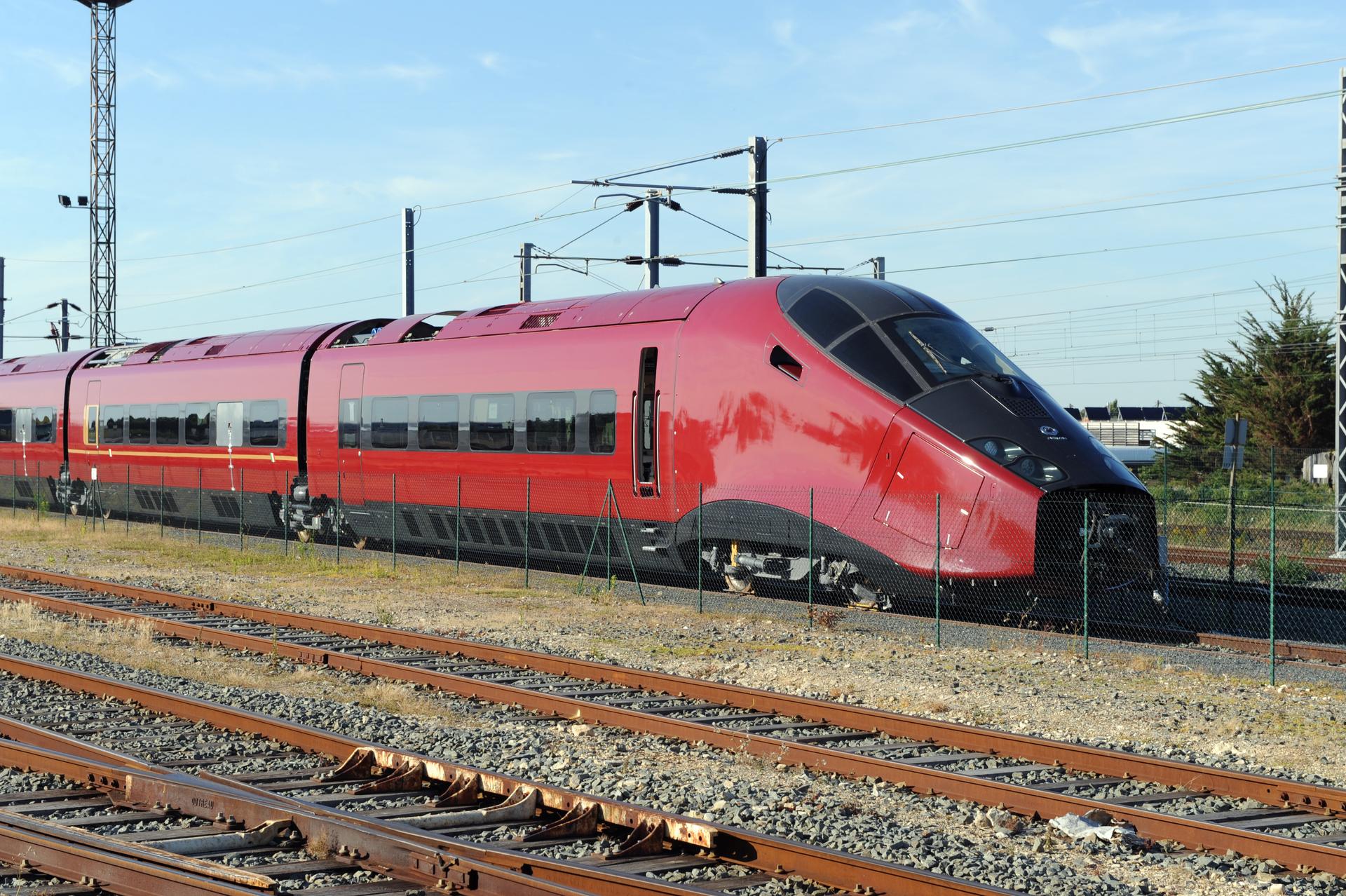Italy’s state owned rail crushes a private competitor
A high speed train in Italy, pictured in 2010.
TURIN, Italy — At 7:10 every weekday morning, a shiny new train used to leave Turin, northern Italy's second biggest town and home to the automaker Fiat, bound for Milan, the country's economic hub.
The train felt more like a luxury car: plasma screens dotted the walls and even the toilets. The seats were large and had plush cushions. There was even a small shop where commuters could stock up on groceries. A trip cost just 10 euros, or $14, each way.
But most of time the train, run by the private Arenaways, was depressingly empty. And the company, Italy's first private competitor in passenger railway service, declared bankruptcy at the end of July.
Arenaways' tale provides insight into why it’s so difficult to start a business in Italy, a country hobbled by public debt and enduring austerity cuts to avoid becoming yet another euro zone country in need of a bailout.
The company took on state-owned former monopoly Ferrovie dello Stato, by focusing on quality in its Turin-Milan service, which launched in November 2010. The encompasses one of the richest and most densely populated regions in Italy.
About 32,000 people each day travel the 100 miles between the two cities on the commuter trains run by Trenitalia, the passenger transport arm of Ferrovie dello Stato and Italy’s main rail operator. According to what they write on community websites and local newspapers, many are not happy with the service. Trenitalia's commuter trains are filthy, often delayed and dramatically overcrowded, they write, so much so that many travelers are forced to stand for all the 90 minutes of the trip.
Europe: Arrrgh – Pirate Party takes Berlin
Traveling on the new private trains, one of them told La Stampa, Turin's paper of record, was like “a dream,” though many complained about Arenaways ticket prices, which initially were almost double Trenitalia's.
Yet very few of them chose the private rail company, even after it slashed prices by almost half.
Giuseppe Arena, the owner and founder of Arenaways, estimated earlier this year that 50 to 60 passengers took his train on an average morning, despite a capacity of 400.
At midday, just about a dozen passengers would take the train each way.
In a conversation with GlobalPost, Arena blamed the hostility of the “poteri forti” — an Italian expression that might be translated as "vested interests" — for his empty trains. He said they tried to block and boycott his company's project for years.
He put most of the blame on Ferrovie dello Stato. When in the 1990s Italy was forced to start liberalizing its rail transport market, Ferrovie dello Stato was transformed into a public company. But Italy's government retained 100 percent of its shares.
Ferrovie dello Stato owns both Trenitalia — which operates passenger services and is thus Arenaways’ competitor — and Rfi, which owns and manages the rail network. Rfi decides which trains get which times and which routes.
But he took this system into account, Arena said, before starting his company. “It's always hard to break into former monopolies,” he acknowledged.
What really crippled Arenaways, he said, was a decision by Italy's transport ministry last year just before he started operating. Thanks to an obscure regulation inserted by the government into a law on a different topic, Arenaways trains were forbidden to stop anywhere between Turin and Milan, thus effectively preventing them from tapping the vast suburban commuter market.
Europe: Blood diamonds for sale in Antwerp
The regulation says that any private competitor entering the market must not damage the profitability of the incumbent because this might damage the incumbent's capacity to provide public utility services. But this, according to an analysis of the case by Andrea Boitani and Francesco Ramella, means putting the “protection of a company's interests before passengers’.”
Arenaways appealed the ruling without success.
But it is not just the former rail monopoly that is averse to private competition, said Arena, who also blamed the customers.
Customers associations denounced Trenitalia's “obstructionism” against its private competitor and regularly lament Trenitalia's bad service.
But in a country were rail lines are frequently blocked by striking workers or protesters, Arena complained that no such high-profile action was ever taken to stand up for his business.
“It seems that in Italy we are only good at complaining, but when someone actually tries to be enterprising and do something about it, he is left alone,” Arena said. “In this I am the real revolutionary.”
Trenitalia's CEO, Franco Moretti, responded to the criticism by stressing that his company “merely follows the rules.”
Trenitalia also benefits from government funding. For example, the regional government subsidizes it for providing access to the disabled. But, Arena said, “They have only one disabled-friendly train in the evening while all our trains are.”
His company was losing “a lot of money” on the Turin-Milan route, Arena told GlobalPost, but he discounted analysts' fear that he would be forced to shut it down. A few months later, his fellow investors forced him to throw in the towel.
Every day, reporters and producers at The World are hard at work bringing you human-centered news from across the globe. But we can’t do it without you. We need your support to ensure we can continue this work for another year.
Make a gift today, and you’ll help us unlock a matching gift of $67,000!
